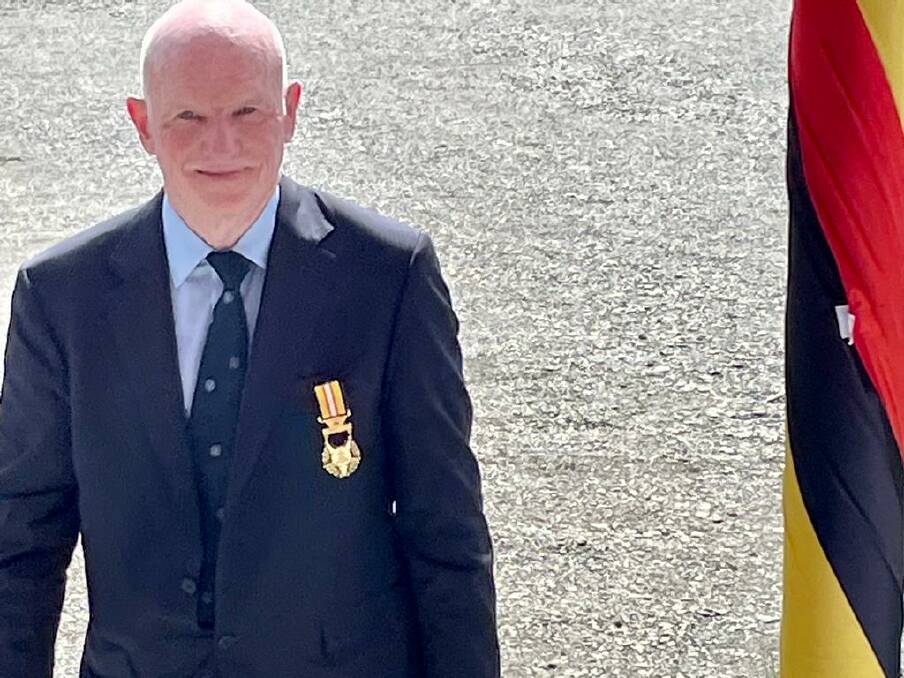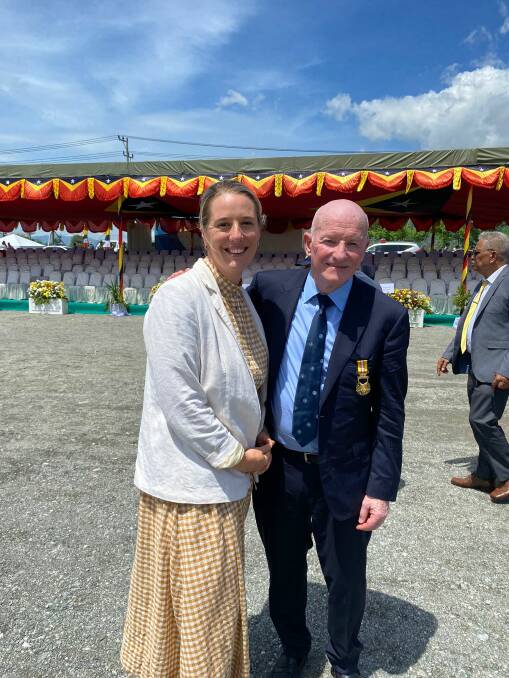
The impact of pandemic border closures took a toll on the people of Timor-Leste in need of life-saving heart treatment, but the charity is now finally getting back its rhythm.
Subscribe now for unlimited access.
$0/
(min cost $0)
or signup to continue reading
When COVID-19 spread across the world and the borders of Australia slammed shut, so too did much of the work Warrnambool cardiologist Noel Bayley has done in Timor-Leste.
"The pandemic was a disaster really because we couldn't get into the country, and nor could we get patients over here for procedures," Dr Bayley said. "There were two years when we couldn't do in-country clinics."
Even though his work has been interrupted by the pandemic, his efforts over the past two decades for the people didn't go unnoticed.
In November, Dili rolled out the red carpet for Dr Bayley when he was awarded the country's highest civilian honour.
From the moment he landed he was given the VIP treatment - something he is not used to after more than 30 trips to Timor-Leste.
He said normally when he arrived in Dili he would join the queue, pay for his visa and get a ride to his accommodation in the back of an old ute.
"On this occasion I rocked up and someone met us off the plane and escorted us to the VIP lounge."
Dr Bayley was one of three people to be presented with the award.
"They put us in three limos with a police car at the front and police car at the back, sirens and lights, the whole nine yards. It was surreal," he said.
"Normally when I get there, the guy who has been helping me for many years arrives and we put all the gear in the back of the ute and I climb into the back...
"So this was about as different as it could possibly be."
The ceremony itself was in a massive field in front of thousands of people.
"It was huge," Dr Bayley said.
With military marching bands and the award presented by President Jose Ramos-Horta, it was in stark contrast to the relatively low-key affair when he was presented with an AM in 2018 at Government House.
For Dr Bayley, who shies away from the spotlight, the award was an honour. "It's absolutely not my sort of thing but I was really touched," he said. "I'm not a huge fans of awards, but it's really good for the organisation."
After two years of not being able to carry out the pro-bono work like he had been, Dr Bayley said things were slowly getting back to normal. In the past month or so he had been able to treat patients in Australia.

In early 2020, his East Timor Hearts Fund was able to operate on three patients who were brought to Australia before the borders shut.
"They quite literally got on the last plane from Darwin to Dili having had successful procedures," Dr Bayley said.
During the border closures, they were able to run Zoom clinics to provide advice to local doctors and to let people know they hadn't been abandoned, but it was not ideal.
"It was clearly sub-optimal. There is no doubt a few people died who wouldn't have died, young women who wouldn't have died had we been able to get their procedures done," Dr Bayley said.
"The other consequence was not only did we do no procedures for two years, even when things got started again it was really, really slow. COVID had backed up the system all over the place."
It's probably only since late last year that they started to get procedures done in Australia, but their in-person clinics restarted in March last year. "There's now a substantial backlog of people with life-threatening disease," he said.
He said normally in a year they would do 15 to 20 procedures. "That's 40 patients who didn't get done," Dr Bayley said. "So COVID was a catastrophe but we did our best to make sure the patients know we hadn't forgotten them."
So COVID was a catastrophe but we did our best to make sure the patients know we hadn't forgotten them.
- Dr Noel Bayley
Dr Bayley said fear of COVID-19 also kept people from getting the help they needed. "They knew they had heart disease and they were terrified that if they got COVID they'd do very badly so they wouldn't come to clinics," he said.
He said there was a huge burden of untreated disease in Timor-Leste, most of it due to rheumatic heart disease - a chronic inflammatory disease of the heart valves that is essentially related to third world living conditions.
But after 20 years of going to Timor-Leste, Dr Bayley has seen firsthand how heart health was starting to change with coronary disease on the rise.
"When I first went there, there was virtually no coronary disease, so heart blockages in the arteries, and we are now seeing that with a degree of regularity," he said.
The Western diet could be to blame, he said. "I'm not sure if Dili has a McDonald's but it certainly has hamburger joints," he said.
East Timor Hearts Fund now has a team of up to eight cardiologists who volunteer their time to visit the country.
Over the years more than 100 people have been to Australia for procedures, and thousands more patients seen during their visits.


